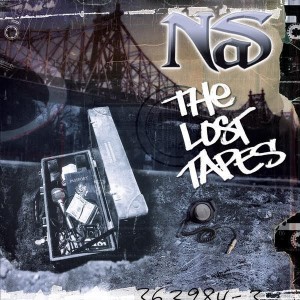
The Lost Tapes released September 23rd of 2002, and introduced the East Coast Icon under an unfamiliar canvas. While fans initially familiarized with Nas the Thug, who rallied voices against societal maladies while simultaneously lashing out verses against West Coast’s Jay Z, the Hip-hop scene discovered Nas the Storyteller.
Produced by the likes of L.E.S., The Alchemist, Poke and Tone, and Deril “D-pot” Angelettie, and labeled under both Ill and Columbia Records, the compilation collection featured unreleased content, all of which captured through a subtle, more laid-back vibe—which, to me, staged the perfect backdrop for Nas’ introspective motifs.
On “My Way” Nas reflects on the transition from his impoverished origins to the “life of a rich thug”, enumerating numerous memorable chapters, but in the end concluding that he “still feels broke with millions in the bank”. On the same note, “U Gotta Love It” embodies a perplexing attempt at self-evaluation: “This thug life you claimed it, I make millions from entertainment/ Now back in the hood, certain cats they wanna kill me/ They ice-grill me, but on the low, n****s feel me”.
On “Nothing Lasts Forever”, the Thug becomes the Teacher, encouraging listeners to treasure life’s epiphanies no matter how simple they present. And the Teacher becomes the Advocate with songs like “Black Zombie”, where Nas resonates his passionate reflection towards issues like poverty, prejudice, economic inconsistencies, and even dependency.
Nas dives deep with himself as he acknowledges his own commercial enthrallment: “I’m a Colombia record slave/ So get paid/ Control your own destiny, you are a genius/ Don’t let it happen to you like it did me”.
At the cost of introducing Nas’ new persona, as well as lacking much less in advertisement, The Lost Tapes was met with landslide applause. The record debuted at #10 on the Billboard 200, and sold over 70,000 in its initial week.
More significantly, the album signified Nas’ maturity as a Hip-hop artist, and Rolling Stone critic Jon Caramanica praised it as “the real Stillmatic”, concluding that the album “displayed Nas’ gifts for tightly stiched narrative and stunningly precise detail”. With many other critics conveying a similar perspective, The Lost Tapes came to be known as Nas’ greatest work alongside his 1994 debut album Illmatic.
But the widespread acclaim comes second to the greater significance at hand with the album, for underneath it all, The Lost Tapes discovered a profound sincerity inherent within the East Coast Thug.
Perhaps Nas did a lot of soul-searching with each song, well, coming from a fan’s perspective, I think he found the archetype foundations of an imminent legend.
By Jods Arboleda for RAPStation.com

